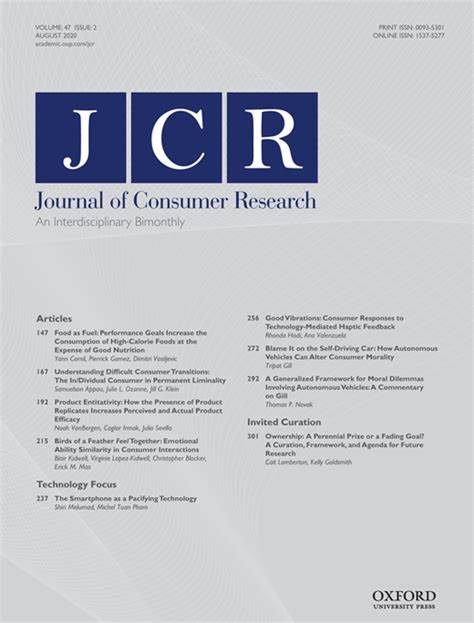Between Cultural Appreciation and Cultural Appropriation: Self-Authorizing the Consumption of Cultural Difference
IF 6.4
1区 管理学
Q1 BUSINESS
引用次数: 4
Abstract
Countervailing discourses of cultural appreciation versus cultural appropriation are fueling a tension between the ethnic consumer subject, who views the consumption of cultural difference as a valorized identity project, and the responsibilized consumer subject, who is tasked with considering the societal impacts of such consumption. Drawing on an extended qualitative investigation of international K-pop consumers, this study illustrates that this tension spurs consumers to pursue self-authorization—the reflexive reconfiguration of the self in relation to the social world—through which consumers grant themselves permission to continue consuming cultural difference. Four consumer self-authorization strategies are identified: reforming, restraining, recontextualizing, and rationalizing. Each strategy relies upon an amalgam of countervailing moral interpretations about acts of consuming difference, informing ideologies about the power relationships between cultures, and emergent subject positions that situate the consuming self in relation to others whose differences are packaged for consumption. Findings show notable conditions under which each self-authorization strategy is deployed, alongside consumers’ capacity to adjust and recombine different strategies as they navigate changing sociocultural and idiographic conditions. Overall, this study advances understanding of how consumers navigate the resurgent politics of marketized cultural diversity in an era of woke capitalism.在文化欣赏与文化挪用之间:文化差异消费的自我授权
文化欣赏与文化挪用的对立话语加剧了民族消费者主体和责任消费者主体之间的紧张关系,前者将文化差异的消费视为一种有价值的身份项目,后者负责考虑这种消费的社会影响。本研究对国际K-pop消费者进行了深入的定性调查,表明这种紧张关系促使消费者追求自我授权——自我与社会世界关系的反射性重构——通过这种授权,消费者允许自己继续消费文化差异。确定了四种消费者自我授权策略:改革、约束、重新文本化和合理化。每一种策略都依赖于对消费差异行为的相互抵消的道德解释,为文化之间的权力关系提供意识形态,以及将消费自我与差异包装为消费的他人联系起来的新兴主体立场。研究结果显示,每种自我授权策略都是在显著的条件下部署的,同时消费者在应对不断变化的社会文化和具体情况时,也有能力调整和重组不同的策略。总的来说,这项研究加深了人们对消费者如何在觉醒的资本主义时代驾驭市场化文化多样性的复兴政治的理解。
本文章由计算机程序翻译,如有差异,请以英文原文为准。
求助全文
约1分钟内获得全文
求助全文
来源期刊

Journal of Consumer Research
BUSINESS-
CiteScore
12.00
自引率
9.70%
发文量
53
期刊介绍:
Journal of Consumer Research, established in 1974, is a reputable journal that publishes high-quality empirical, theoretical, and methodological papers on a wide range of consumer research topics. The primary objective of JCR is to contribute to the advancement of understanding consumer behavior and the practice of consumer research.
To be considered for publication in JCR, a paper must make a significant contribution to the existing body of knowledge in consumer research. It should aim to build upon, deepen, or challenge previous studies in the field of consumption, while providing both conceptual and empirical evidence to support its findings.
JCR prioritizes multidisciplinary perspectives, encouraging contributions from various disciplines, methodological approaches, theoretical frameworks, and substantive problem areas. The journal aims to cater to a diverse readership base by welcoming articles derived from different orientations and paradigms.
Overall, JCR is a valuable platform for scholars and researchers to share their work and contribute to the advancement of consumer research.
 求助内容:
求助内容: 应助结果提醒方式:
应助结果提醒方式:


